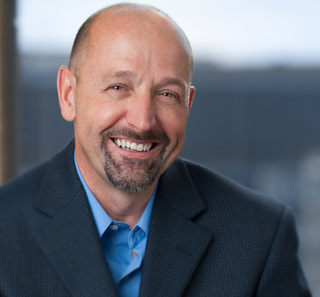President's Blog
Getting to Zero 2016

Zero 2016, the goal to end veteran homelessness by the end of 2015 and chronic homelessness within 2016, is a catalyst for service providers and advocates this summer.
The momentum is building up in the country in the aftermath of last month’s National Alliance To End Homelessness (NAEH) Conference in Washington, DC. Philanthropists from all over the country also gathered before the conference at an event organized by Funders Together To End Homelessness. Advocates are mobilized and service providers are working together faster than ever to house veterans.
This unison bodes well for Zero 2016.
Last week, the Office of the First Lady convened a gathering to measure the progress of the Mayors Challenge To End Veteran Homelessness, which has just closed on its first year.
Colonel Malachowski, who heads Joining Forces at the White House, reported that over 700 mayors and county executives from all over the country have signed on. Houston and New Orleans have already reached their goals to end veteran homelessness. Other cities in the country are close to it.
Some estimates put veteran homelessness at 50,000. The Department of Veterans Affairs has managed to bring this number down noticeably in the last few years through innovative efforts like permanent supportive housing with HUD-VASH and with rapid re-housing and prevention services through Supportive Services for Veteran Families. Both programs use the Housing First approach.
Going forward, the VA will intensify outreach efforts using peer specialists on the ground and housing navigators to engage landlords and help veterans find housing.
According to experts, like NAEH’s President Nan Roman, we have the resources to end veteran homelessness this year. The challenge is going to be to coordinate the resources and stay focused on producing outcomes so we don’t lose our momentum.
The support systems that are helping us achieve Zero 2016 will need to be maintained with private and public funding to ensure we never backslide and continue to house all veterans in need as quickly as possible.
Having philanthropy at the table represents a unique opportunity in this case.
The Senate Subcommittee on Veterans Affairs also met last week. The committee spent time listening to advocates like Baylee Crone of the National Coalition for Homeless Veterans and Michael Blecker of Swords to Plowshares in San Francisco.
The Senators are grappling with an important decision on a bill expanding access to services for veterans who have other than honorable discharges. Some Senators referenced people in their circles who have recovered from addiction and whose examples informed their decisions on funding and regulations for recovery programming.
The bill appears to have a lot of support within the VA community. It has come to be seen as a fair way to reach out to many disconnected veterans whose discharge status might have been lowered due to circumstances that were not completely within their control like PTSD and addiction.
As Michael Blecker pointed out, the bill may even be more relevant for aging Vietnam era veterans who have been disconnected from the system for decades and now need medical care in their later years.
VA Secretary Robert McDonald generously shared how he feels about this at the NAEH Conference. He knows that, like him, other older veterans need additional care.
He wants the VA to be in a position to help them.
This kind of leadership is humbling and inspiring at the same time. It’s powerful to see that national leaders like the Senators and the Secretary are able to draw from personal or family experiences to shape the future for veterans in a more person-centric way.
By the way, call him “Bob”, he likes it…

By Jean-Michel Giraud
President & CEO, Friendship Place
Huffington Post Blogger






